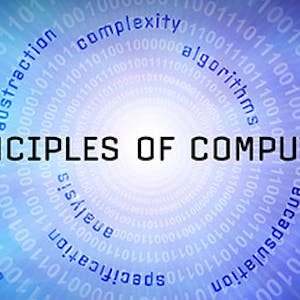Principles of Computing (Part 2)
About this Course
This two-part course introduces the basic mathematical and programming principles that underlie much of Computer Science. Understanding these principles is crucial to the process of creating efficient and well-structured solutions for computational problems. To get hands-on experience working with these concepts, we will use the Python programming language. The main focus of the class will be weekly mini-projects that build upon the mathematical and programming principles that are taught in the class. To keep the class fun and engaging, many of the projects will involve working with strategy-based games. In part 2 of this course, the programming portion of the class will focus on concepts such as recursion, assertions, and invariants. The mathematical portion of the class will focus on searching, sorting, and recursive data structures. Upon completing this course, you will have a solid foundation in the principles of computation and programming. This will prepare you for the next course in the specialization, which will begin to introduce a structured approach to developing and analyzing algorithms. Developing such algorithmic thinking skills will be critical to writing large scale software and solving real world computational problems.Created by: Rice University

Related Online Courses
Are you an HR professional or aspiring to start your career in this domain? This specialization can help to advance your HR career by leveraging the power of generative AI.\\n\\nThe specialization... more
The course for a round the world regatta leads the boats through the Mediterranean Sea and the Atlantic, Southern Indian and South Pacific Oceans. On their voyage, the skippers come across a large... more
This guided project, Flask for Beginners: Creating an Application, will help a beginning Python programmer who is looking to use Flask to create and launch a web application. In this 1.5-hour long... more
This MOOC prepares students that want to analyse trade and investment policies of developing countries and emerging markets. We couch you for the task of giving evidence-based policy. For students... more
This is a Google Cloud Self-Paced Lab. In this lab, you will learn how to utilize custom fields in Looker Explores queries. Looker provides the ability for non-developer users to create and utilize... more








